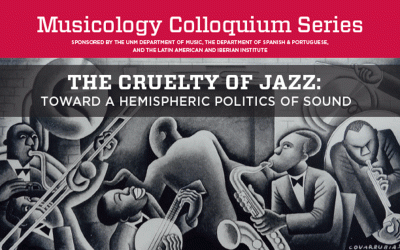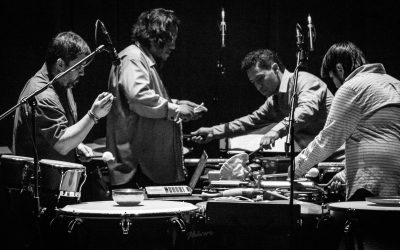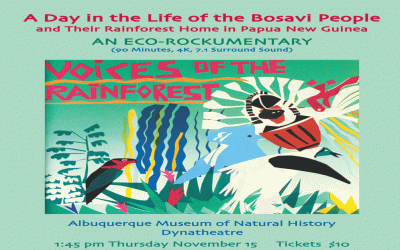Musicology Colloquium
Thursday March 12, 2020
2:00-3:30pm
CFA 2100
This talk explores the relationship between trauma and identity by examining Arab music performance on the U.S.–Mexico border. Drawing on the musicking of Syrian and Mexican migrant communities, I interrogate theories of cultural and psychological trauma and borderland epistemologies to explore how border tensions influence the often-fraught views of identity.
Dr. Andrea Shaheen Espinosa is Associate Professor of Ethnomusicology and Oboe at the University of Texas, El Paso, and currently serves as the Musicology Area Coordinator for the Department of Music. She is the founder and director of the UTEP’s internationally recognized Middle Eastern music ensemble, Layali Al-Sham. She is a Fulbright Fellow, a FLAS recipient, and a Medici Scholar, and is currently serving as the UTEP College of Liberal Arts Dean’s Faculty Fellow. Her research focuses on music, migration, and trauma, and her recent publications include articles in The Double Reed, Cahiers d’ethnomusicologie, and Yearbook for Traditional Music.
The Cruelty of Jazz: Toward a Hemispheric Politics of Sound
Rooted in concepts of affect and Empire, this paper argues that jazz operated in various 20th century Latin American settings as a vital touchstone bearing the risks and benefits of urban modernization, hemispheric geopolitics, and transnational cultural production, “cruelly” echoing the United States’ cultural, political, and economic dominance in the hemisphere and beyond.
Music from the Americas presents Versus 8
Percussion music in the Americas is one of the most exotic, visually attractive, and antique forms of expression since pre-hispanic times. Preserving, promoting and creating music for the percussion family of instruments is at the core of Versus 8’s mission through international collaboration with composers, performers, students, and cultural centers that contribute with their resources to the cycle of music, namely: creation, performance, and listening..
A Day in the Life of the Bosavi People
A 90 minute, 4K, 7.1 surround sound eco-rockumentary concert of a day in the life of the Bosavi people and their rainforest home in Papua New Guinea, directed and produced by Steven Feld and based on recordings and images from 1976-2018.



